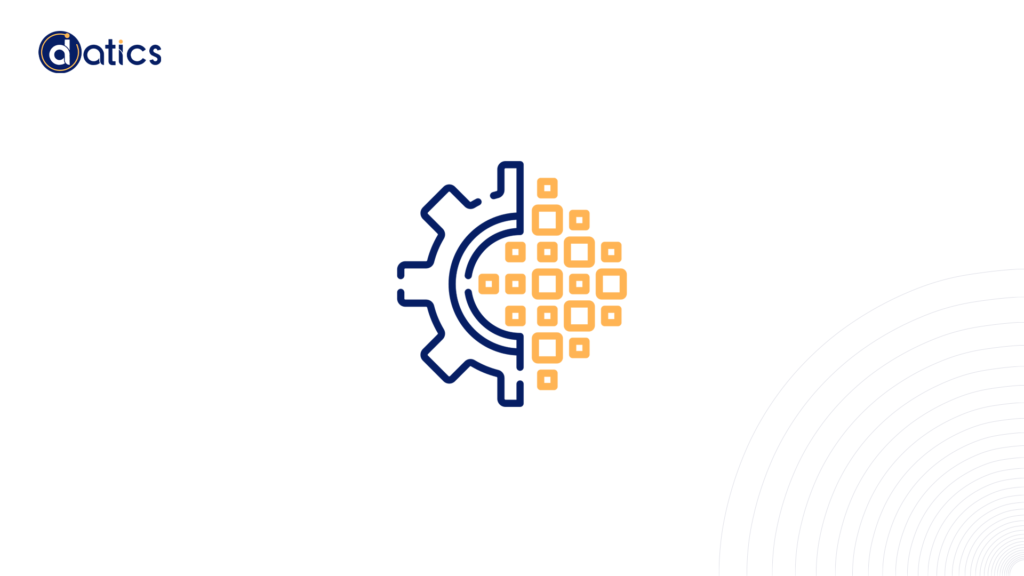Application development services can transform your workflow by enhancing efficiency and enabling seamless automation. These services help businesses create custom software solutions, custom to their unique needs, ensuring a smooth and streamlined workflow.
Quick Highlights:
– Custom Software: Custom to meet specific business needs.
– Workflow Efficiency: Streamlines and automates processes.
– End-to-End Services: From planning to deployment.
In today’s digital world, businesses need to stay ahead of the curve by leveraging advanced technologies. Application development services offer end-to-end solutions that cater to every aspect of software creation. Whether it’s a CRM system, a powerful business intelligence tool, or an efficient mobile app, these services encompass everything from design and development to integration and support.
I’m Umair Majeed, CEO of Datics AI. With years of experience in the IT industry, I’ve helped numerous companies revolutionize their workflows and achieve remarkable growth with bespoke application development services.
Let’s explore the details of how these services can open up new levels of efficiency for your business operations.
Simple application development services glossary:
– custom mobile application development
– custom software development
– software development companies near me
What Are Application Development Services?
Application development services involve the creation of software applications to meet specific needs. These services cover the entire lifecycle of an application, from design to deployment, ensuring a seamless experience for users.
Design
The design phase is crucial. It involves understanding the business requirements and creating a blueprint for the application. This includes:
- User Experience (UX): Ensuring the app is easy to use.
- User Interface (UI): Making the app visually appealing.
- Wireframes and Prototypes: Initial models to visualize the app’s structure and functionality.
Develop
Once the design is approved, the development phase begins. This involves coding the application and bringing the design to life. Development can be broken down into:
- Front-End Development: The part of the application users interact with.
- Back-End Development: The server-side logic, databases, and APIs.
- Integration: Ensuring the app works seamlessly with other systems.
Deploy
Deployment is the final step. This is when the application is made available to users. It includes:
- Testing: Ensuring the app is bug-free and performs well.
- Release: Launching the app on platforms like the App Store, Google Play, or a web server.
- Monitoring: Tracking the app’s performance and making necessary updates.
Types of Applications
Application development services can create various types of applications, including:
- Web Applications: Accessible through web browsers, these apps are designed to be responsive and work across different devices.
- Mobile Applications: Developed for iOS and Android, these apps can be native, cross-platform, or hybrid.
- Desktop Applications: Installed on personal computers, these apps offer powerful functionalities.
- Cloud-Based Applications: Hosted on cloud platforms like Microsoft Azure or AWS, these apps provide scalability and flexibility.
By leveraging application development services, businesses can create custom solutions that improve efficiency, improve user experience, and drive innovation.
Next, let’s explore the benefits of these services in detail.
Benefits of Application Development Services
Application development services offer numerous advantages that can significantly improve your business operations. Let’s explore some key benefits:
Efficiency
Custom applications streamline your workflows, eliminating redundant tasks and automating processes. For example, a logistics company using custom software to track shipments and monitor vehicle performance can optimize routes and improve delivery times.
Automated processes reduce manual work, freeing up your team to focus on more critical tasks.
Innovation
By leveraging cutting-edge technologies, application development services drive innovation within your organization. For instance, integrating AI-based algorithms can automate complex decision-making processes, while IoT devices can provide real-time data for smarter business operations.
Innovation not only keeps your business competitive but also opens up new revenue streams.
Streamlined Processes
Custom applications are designed to fit your specific workflows, ensuring that all processes are as efficient as possible. This can lead to significant time and cost savings.
For example, a retail app that sends push notifications about flash sales can keep customers engaged and encourage repeat business.
Intelligent Workforce
With custom applications, your team has access to tools that make their jobs easier and more efficient. Features like real-time data analytics and seamless collaboration tools empower your workforce to make smarter decisions faster.
Imagine a sales team with instant access to customer data and predictive analytics. This kind of intelligence can significantly boost performance.
Data Security
Data security is paramount. Custom applications can be designed with your specific security requirements in mind, ensuring compliance with industry regulations and protecting sensitive information.
For instance, healthcare apps must comply with HIPAA regulations to protect patient data. Custom solutions ensure these standards are met without compromising functionality.
Compliance
Different industries have unique compliance requirements. Custom applications are built to adhere to these regulations, minimizing the risk of legal issues.
For example, financial applications must comply with stringent data protection laws. Custom solutions can be custom to meet these specific needs, ensuring your business stays compliant.
By leveraging application development services, businesses can achieve greater efficiency, foster innovation, streamline processes, empower their workforce, and ensure data security and compliance. Next, we’ll explore the different types of application development services available.
Types of Application Development Services
Custom Software Development
Custom software development is all about creating applications specifically tailored to your business needs. Unlike off-the-shelf solutions, custom applications are designed to fit your unique workflows and goals.
Rapid increments and iteration are key in custom software development. By breaking the project into smaller parts, developers can quickly deliver functional pieces of the software and make improvements based on user feedback.
Bespoke solutions ensure that the application meets all your requirements, providing a perfect fit for your business.
Mobile App Development
Mobile apps are essential in today’s digital world. They help businesses connect with customers and streamline operations on the go.
iOS and Android are the two primary platforms for mobile app development. Native apps are built specifically for one platform, ensuring high performance and seamless user experience. For iOS, developers use Swift and Objective-C, while Android apps are built with Kotlin and Java.
Cross-platform apps are designed to work on multiple operating systems with a single codebase. Tools like React Native and Flutter allow developers to create apps that run on both iOS and Android, saving time and resources.
Hybrid apps combine elements of native and web applications. They are built using web technologies like HTML, CSS, and JavaScript but run within a native container.
Progressive web apps (PWAs) offer a middle ground. They are web applications that behave like native apps, providing offline functionality and cross-browser compatibility.
Web Application Development
Web applications are crucial for modern businesses. They provide a responsive, user-friendly interface accessible from any device with an internet connection.
Responsive web apps adjust their layout and functionality based on the screen size and device, ensuring a consistent user experience across all platforms.
Cross-browser compatibility is essential for web apps. Developers use frameworks like React and Angular to ensure that the application works seamlessly on all major browsers.
Offline functionality allows web apps to work without an internet connection. Technologies like Service Workers enable caching of data and resources, ensuring the app remains functional even when offline.
Cloud Application Development
Cloud-based solutions offer scalability and flexibility, making them ideal for businesses of all sizes.
Scalability is a significant advantage of cloud applications. They can easily handle increasing workloads by adding more resources, ensuring smooth performance even during peak times.
Flexibility allows businesses to quickly adapt to changing needs. Cloud applications can be accessed from anywhere, providing remote work capabilities and seamless collaboration.
Microsoft Azure and AWS are two leading platforms for cloud application development. They offer a range of services and tools to build, deploy, and manage cloud applications efficiently.
By leveraging these application development services, businesses can create custom, mobile, web, and cloud applications that meet their specific needs and drive efficiency. Next, we’ll explore the key technologies used in application development.
Key Technologies in Application Development
iOS App Development
Swift is Apple’s preferred language for iOS and macOS app development. Known for its modern syntax and performance optimization, Swift makes it easy to build high-performance apps. For example, the popular Viber Messenger, used by over 1 billion people, leverages Swift to ensure smooth user interactions and robust performance.
Objective-C is the older language still used in many legacy iOS applications. Although Swift is more modern, Objective-C remains essential for maintaining and updating older apps.
SwiftUI is a framework introduced by Apple to simplify UI design. It allows developers to build user interfaces using a declarative Swift syntax, making the development process faster and more intuitive.
CocoaPods is a dependency manager for Swift and Objective-C projects. It simplifies the process of integrating third-party libraries, ensuring that developers can easily add new features and functionalities to their apps.
RxSwift is a reactive programming library for Swift. It helps developers manage asynchronous data streams and event-driven programming, making it easier to build responsive and interactive apps.
Android App Development
Kotlin is the preferred language for Android development. Known for its concise syntax and null safety features, Kotlin has become a favorite among developers. For instance, Kotlin was quickly adopted by Google as an official language for Android, streamlining the development process.
Java has been a mainstay in Android development for years. Its robust ecosystem and platform independence make it a reliable choice for building scalable and maintainable apps.
Graddle is the build automation tool used in Android development. It simplifies the process of managing dependencies and compiling code, ensuring that developers can focus on writing high-quality code.
Dagger2 is a dependency injection framework for Java and Android. It helps manage object creation and dependencies, making the code more modular and easier to test.
JetPack is a suite of libraries, tools, and guidance provided by Google to help developers build high-quality Android apps. It includes components for managing UI, navigation, and data storage, among others.
Cross-Platform App Development
React Native allows developers to build mobile apps using JavaScript and React. By leveraging a single codebase, React Native enables apps to run on both iOS and Android, saving time and resources. For example, companies like Facebook and Instagram use React Native to maintain consistency across platforms.
Flutter is Google’s UI toolkit for building natively compiled applications for mobile, web, and desktop from a single codebase. It uses the Dart programming language and is known for its fast development cycle and expressive UI.
Native Script is another popular framework for building cross-platform mobile apps. It allows developers to use JavaScript, TypeScript, or Angular to create apps that run on both iOS and Android.
Progressive Web App Development
React is a JavaScript library for building user interfaces. It is widely used in PWA development for its component-based architecture and efficient rendering.
Angular is a framework for building dynamic web applications. It provides a robust set of tools for developing PWAs, including support for offline functionality and service workers.
Redux is a state management library often used with React and Angular. It helps manage application state in a predictable way, making it easier to develop complex PWAs.
Polymer is a library for building web components. It simplifies the process of creating reusable and encapsulated components, making it easier to develop modular and maintainable PWAs.
Workbox is a set of libraries and tools for caching and serving files offline. It helps developers implement service workers, ensuring that PWAs can function without an internet connection.
Lighthouse is an open-source tool for auditing the performance, accessibility, and SEO of web apps. It provides actionable insights to improve the quality of PWAs, ensuring they meet modern web standards.
By leveraging these technologies, application development services can create high-quality, efficient, and scalable applications for various platforms. Next, we’ll explore how these services cater to different industries.
Application Development Services for Various Industries
Healthcare
In the healthcare industry, application development services are changing patient care. mHealth (mobile health) apps offer a new level of convenience and accessibility. Imagine a patient booking appointments, accessing medical records, and receiving real-time updates all through a mobile app. This is not just futuristic; it’s happening now.
Patient-friendly software is crucial. Custom apps can streamline administrative tasks and improve communication between patients and healthcare providers. For example, telemedicine platforms enable remote consultations, making healthcare accessible to more people, especially in rural areas.
Retail & eCommerce
The retail and eCommerce sectors thrive on engaging mobile software. Modern retail demands apps that offer personalized shopping experiences, driving customer engagement and loyalty. Think of eCommerce giants like Amazon. Their apps are designed to keep users hooked with features like product recommendations and seamless checkout processes.
eCommerce solutions also include inventory management and customer relationship management (CRM) tools. These tools help businesses track stock levels, manage customer interactions, and analyze sales data, ensuring a smooth operation.
FinTech
The FinTech industry relies heavily on scalable financial technology. Speed and security are paramount. Custom mobile banking apps allow users to manage their finances with ease. Whether it’s transferring money, paying bills, or checking account balances, everything is just a tap away.
For instance, automated trading systems execute trades based on predefined criteria, increasing efficiency and reducing human error. Risk management tools help financial institutions identify and mitigate risks, ensuring a secure financial environment.
Travel & Hospitality
Practical mobile software is revolutionizing the travel and hospitality industry. Imagine a resort where guests can check in, book activities, and order room service—all through a mobile app. This improves the guest experience, making every stay memorable and hassle-free.
Resort comfort is lifted through custom apps that provide seamless interactions and instant access to information. From booking to check-out, these apps ensure that every aspect of the customer journey is effortless and enjoyable.
Construction
The construction industry is embracing digital era solutions. Advanced mobile apps help manage projects, track progress, and ensure compliance with safety standards. For example, a custom app can provide real-time updates on project status, helping managers make informed decisions.
These advanced mobile apps also facilitate communication between team members, suppliers, and clients, making operations smoother and more efficient. The result? Projects are completed on time and within budget, allowing construction companies to focus on what matters most.
Next, we’ll dig into the emerging technologies driving innovation in application development services.
Emerging Technologies in Application Development
Artificial Intelligence
Artificial Intelligence (AI) is revolutionizing application development. AI-based algorithms and machine learning enable apps to learn from user behavior, making them smarter and more efficient. For example, deep learning can analyze vast amounts of data to predict user preferences and automate tasks.
AI also plays a crucial role in automation. By automating repetitive tasks, businesses can save time and reduce human error. Imagine an app that schedules meetings, answers customer queries, and even manages inventory—all without human intervention. This is the power of AI in application development.
Internet of Things
The Internet of Things (IoT) is another game-changer. IoT devices collect and exchange data, creating a network of connected devices. This technology allows for secure infrastructure and real-time data processing, making applications more responsive and interactive.
For example, smart home apps can control lighting, temperature, and security systems from a single interface. In industrial settings, IoT-enabled apps monitor machinery and predict maintenance needs, reducing downtime and improving efficiency.
Blockchain
Blockchain technology offers a new level of security and transparency. Private blockchain networks ensure that data is tamper-proof and easily traceable. This is particularly useful for applications that require high levels of security, such as financial transactions and supply chain management.
Smart Contracts are another exciting feature. These self-executing contracts automatically enforce the terms of an agreement, eliminating the need for intermediaries. Blockchain-based marketplaces can also facilitate secure and transparent transactions, making them ideal for eCommerce platforms.
Cloud Computing
Cloud computing provides the scalability and flexibility that modern applications need. Platforms like Microsoft Azure and AWS offer robust cloud services that can handle large volumes of data and traffic. This makes cloud-based applications highly scalable and reliable.
A flexible business environment is crucial for growth. Cloud solutions allow businesses to scale their operations up or down based on demand, ensuring they only pay for what they use. This is especially beneficial for startups and growing enterprises.
Big Data
Big Data is changing how businesses make decisions. By analyzing large datasets, companies can gain valuable business intelligence and customer insights. This data-driven approach helps in creating personalized user experiences and targeted marketing strategies.
Data analysis tools can identify trends and patterns, enabling businesses to make informed decisions. For example, eCommerce platforms can use big data to recommend products based on user behavior, increasing sales and customer satisfaction.
Augmented Reality
Augmented Reality (AR) is opening up new possibilities in application development. AR can create 3D prototypes, making it easier for businesses to visualize and test products before they go to market. This technology is particularly useful in industries like retail and construction.
Enterprise training is another area where AR shines. Imagine training sessions where employees interact with 3D models and simulations, making learning more engaging and effective. AR meetings can also improve remote collaboration, making it feel as if everyone is in the same room.
Next, we’ll explore some frequently asked questions about application development services.
Frequently Asked Questions about Application Development Services
What are application development services?
Application development services involve creating software applications for various platforms like web browsers, mobile devices, and desktops. These services include the entire process of design, development, testing, and deployment. The goal is to build custom applications that meet specific business needs and improve workflow efficiency.
For example, at Datics AI, we specialize in developing custom solutions that integrate seamlessly with existing systems, ensuring minimal disruption and maximum efficiency.
What are application services examples?
Examples of application services include:
- Custom Software Development: Custom solutions for specific business processes.
- Mobile App Development: Creating apps for iOS, Android, or cross-platform.
- Web Application Development: Developing responsive and cross-browser compatible web apps.
- Cloud Application Development: Building scalable and flexible cloud-based solutions.
For instance, a mobile banking app allows users to manage their finances securely and efficiently from their smartphones. Similarly, a CRM system can help businesses manage customer relationships more effectively.
What is application development cost?
The cost of application development varies based on several factors:
- Project Complexity: More features and functionalities mean higher costs.
- Developer Expertise: Experienced developers charge more.
- Location: Developers in high-cost areas may have higher rates.
At Datics AI, we offer various pricing options to suit different project needs:
- Fixed Price: Ideal for small projects with well-defined requirements.
- Time & Material (T&M): Best for medium to large projects that need flexibility.
- T&M with a Cap: Suitable for larger projects with a focus on cost management.
For example, developing a Minimum Viable Product (MVP) can cost less and be delivered faster, often within 2-4 months, providing a solid foundation for future improvements.
Next, we’ll dig into the conclusion and wrap up our discussion on how application development services can transform your workflow.
Conclusion
At Datics AI, we specialize in custom software development custom to your unique business needs. Our end-to-end services cover every stage of your project, from initial consultation to post-launch support. This comprehensive approach ensures that you get a high-quality, market-ready product that seamlessly integrates into your existing systems.
Why Choose Datics AI?
Innovative Solutions: We integrate cutting-edge technologies like AI and blockchain to give you a competitive edge. For example, our work with Viber Messenger showcases our ability to handle complex, large-scale projects with over 1 billion users worldwide.
Global Clients: Our diverse portfolio includes clients from various industries and regions. This global experience allows us to bring innovative perspectives to every project. For instance, our BI solution for Alta Resources saved up to 90% of report preparation time, demonstrating our capability to deliver efficient solutions.
Meticulous Attention to Detail: We adhere to the highest standards in software development. From design to deployment, every aspect of your software meets rigorous quality benchmarks. Our UI/UX design follows ISO 9241 guidelines to ensure intuitive and user-friendly interfaces.
Comprehensive Support: Our relationship doesn’t end with deployment. We offer continuous support and maintenance to keep your software up-to-date and fully functional. Our customizations for Embedded Android & AOSP showcase our commitment to enhancing functionality and ensuring compatibility with unique hardware components.
By choosing Datics AI, you’re not just investing in a software solution; you’re partnering with a team dedicated to your success. Our custom app development services are designed to streamline your operations, improve efficiency, and provide functionalities that off-the-shelf software simply can’t offer.
Ready to transform your business with custom software? Contact us today to get started on your software development journey.
Let’s craft your success story together.






